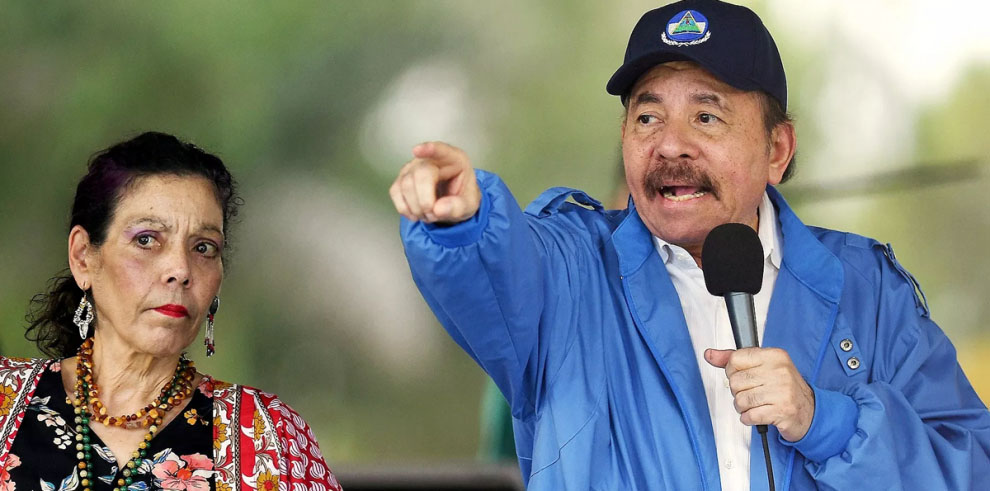WASHINGTON, (Reuters) – The United States, Britain and Canada imposed sanctions on Nicaraguan officials yesterday in a concerted response to an election that many countries have denounced as rigged in favour of President Daniel Ortega.
The Biden administration slapped punitive measures on nine Nicaraguans, while the UK targeted eight, including Vice President Rosario Murillo, Ortega’s wife, considered a power broker who rules alongside the former Marxist guerrilla leader.
Canada rolled out sanctions against 11 Nicaraguan officials.
The U.S. sanctions, which included the energy minister, vice minister of finance and an entire government ministry, followed Ortega’s re-election to a fourth consecutive term on Nov. 7 after jailing political rivals and cracking down on critical media.
President Joe Biden had accused Ortega of organizing a “pantomime” election in the Central American nation, and U.S. officials have pledged to work with allies to ratchet up the pressure.
“The United States is sending an unequivocal message to President Ortega, Vice President Murillo and their inner circle that we stand with the Nicaraguan people in their calls for reform and a return to democracy,” Andrea Gacki, director of the U.S. Treasury’s Office of Foreign Assets Control, said in a statement.
The Nicaraguan government did not immediately respond to a request for comment.
Ortega has derided his U.S. critics as “Yankee imperialists” and accused them of trying to undermine Nicaragua’s electoral process. Cuba, Venezuela and Russia have offered Ortega their backing.
A senior State Department official told Reuters last week that a sanctions announcement would be the first in a series of steps the U.S. government will “ramp up over time.”
Previous sanctions imposed by Biden and his predecessor, Donald Trump, failed to deter Ortega, and many analysts are skeptical whether new measures will have much impact.
The Organization of American States (OAS) adopted a resolution on Friday saying Nicaragua’s election lacked “democratic legitimacy.” Twenty-five nations voted in favour and seven abstained, including Mexico, Honduras and Bolivia.
The British Foreign Office said sanctions were imposed on Murillo “for her involvement in the state-backed repression of demonstrations, the discrediting of independent journalists and the exclusion of opposition candidates from elections.”
Murillo was hit by U.S. sanctions in 2018.
Among those targeted for sanctions by the United States were Salvador Mansell Castrillo, minister of energy and mines; Jose Adrian Chavarria Montenegro, vice minister of finance; an ambassador and several mayors and energy officials.
Nicaragua’s Public Ministry, the public prosecutor’s office, was designated for having “unjustly arrested and investigated presidential candidates and prevented them from running for office,” Treasury said.
Treasury sanctions call for a freeze on U.S. assets and prohibit Americans from doing business with them.
The British sanctions also covered Nicaragua’s attorney general and the president of the Supreme Court of Justice, and the president of the National Assembly, the Foreign Office said.
British sanctions carry asset freezes and UK travel bans. The Canadian measures forbid any transactions by Canadians with targeted individuals or activity “related to any property of these listed persons or providing financial or related services to them.”

